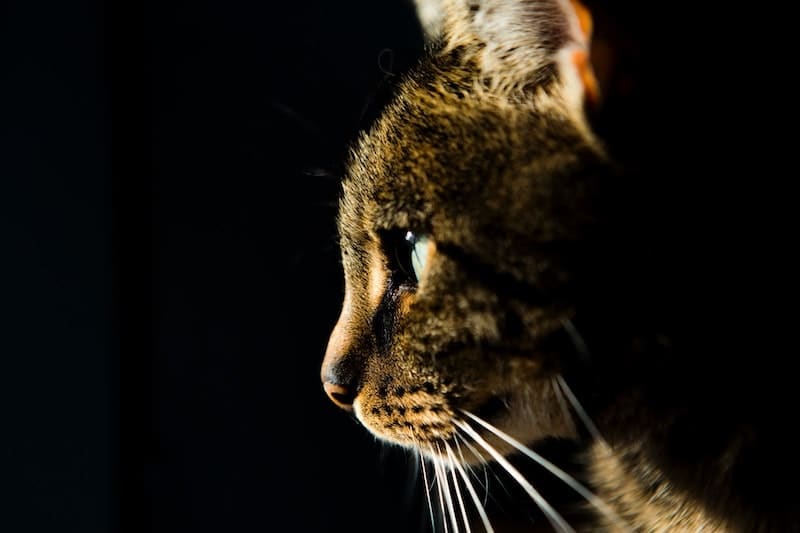Cats come in many different shapes and sizes, and they have many different colors and patterns on their coats. They all deserve unique names that suit their looks and personalities. If you have or plan to get a new cat that looks or acts strange or mysterious, you may want to choose a hardcore gothic name that complements their features and temperament.
Luckily, there are many cool gothic names to choose from. But it can be overwhelming to even begin thinking about possible names. So, we put together a list of gothic names for cats of both sexes. Hopefully, you will find the perfect option for your cat right here. If nothing else, you will find a bit of inspiration!
100+ Hardcore Male Gothic Cat Names
Male cats can be fearless, curious, playful, shy, or a combination of these things. We have covered all the bases by identifying gothic names for male cats that can work well for various personality types.
Here are more than 100 names to choose from that could be the perfect match for your kitty cat:
- Alfie
- Armand
- Asher
- Astral
- Baron
- Batty
- Bear
- Beast
- Beetle
- Betelgeuse
- Binx
- Blackbeard
- Blackjack
- Blacktop
- Blade
- Blaken
- Bones
- Bonfire
- Bram
- Butler
- Caps
- Carter
- Casper
- Catacomb
- Cinder
- Clark
- Coal
- Coffee
- Cooper
- Crow
- Cyclops
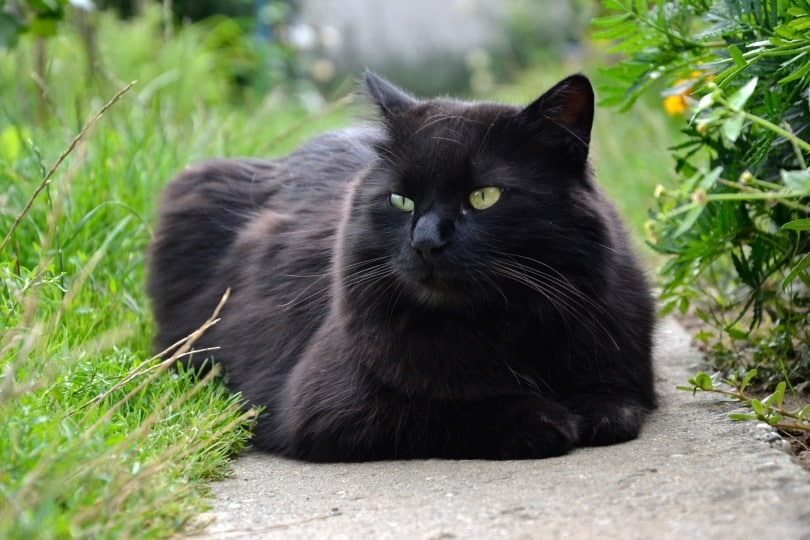
- Dauntless
- Decker
- Demon
- Draco
- Drake
- Duke
- Dusty
- Dwarf
- Eclipse
- Ego
- Eight Ball
- Fudge
- Gloom
- Gomez
- Grayson
- Gremlin
- Hades
- Hannibal
- Harry
- Hole
- Igor
- Inky
- Isis
- Java
- Jekyll
- Jet
- Kumo
- Kuro
- Lestat
- Liam
- Loki
- Lovecraft
- Matter
- Mourn
- Nebulous
- Nero
- Nightmare
- Nimbus
- Nocturnal
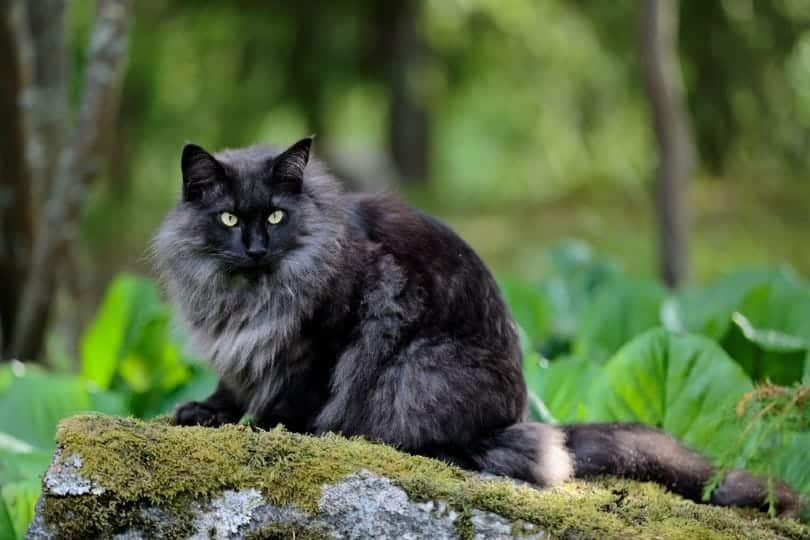
- Odyssey
- Omen
- Panther
- Phantom
- Pirate
- Preto
- Raider
- Ripley
- Rochester
- Salem
- Sammy
- Scarface
- Scorch
- Shade
- Shade
- Silhouette
- Sin
- Sly
- Spider
- Spike
- Stone
- Stygian
- Styx
- Sundown
- Tarmac
- Thunder
- Toby
- Twix
- Vampire
- Vlad
- Voltaire
- Voodoo
- Wicked
- Winchester

100 Hardcore Female Gothic Cat Names
When it comes to naming a female cat, you can go cute, or you can go bold. There is no right or wrong answer here. Why not try out one or more of the following options for your cat?
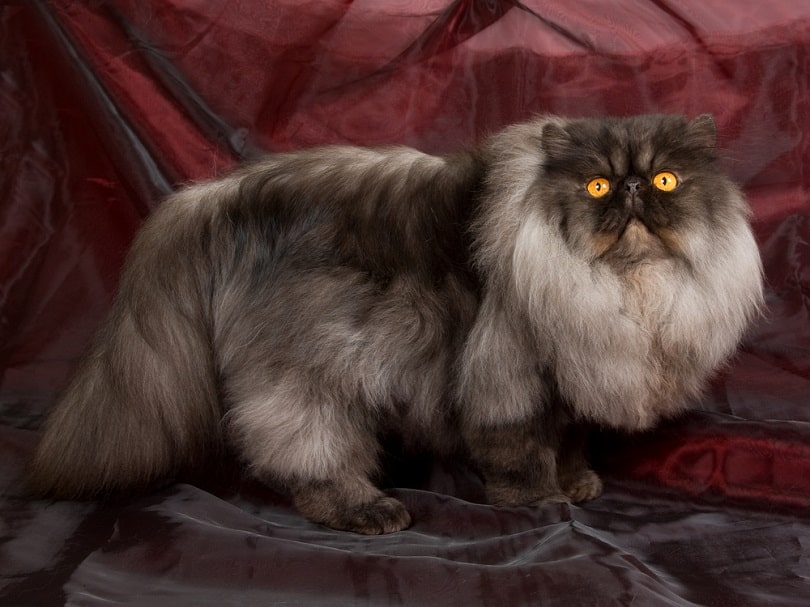
- Abbi
- Abracadabra
- Akasha
- Ash
- Astral
- Ava
- Batty
- Beans
- Beauty
- Bella
- Booboo
- Buffy
- Circe
- Clara
- Coraline
- Crumbs
- Crystal
- Dahlia
- Déjà Vu
- Dinah
- Dot
- Drusilla
- Ebony
- Elvira
- Emily
- Essence
- Freya
- Fudge
- Gina
- Godiva
- Gretta
- Harriet
- Hex
- Hollyhock
- Huntress
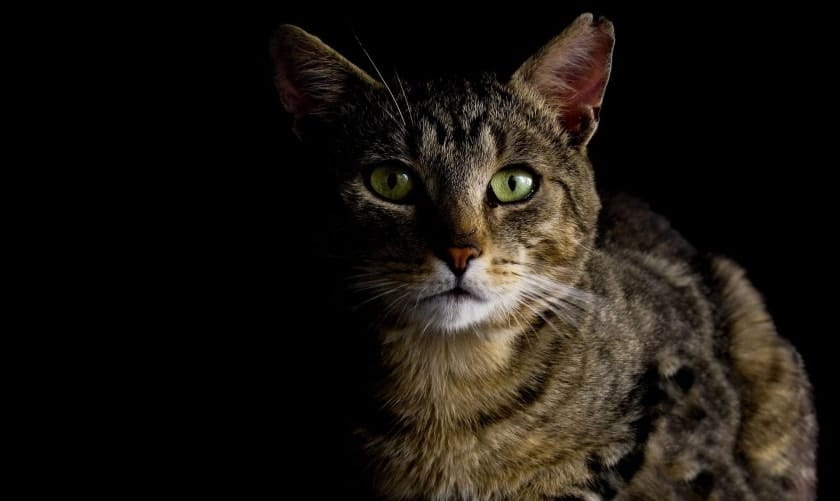
- Indigo
- Ingrid
- Inkie
- Jaggie
- Jasmine
- Java
- Jet
- Jezebel
- Joy
- Kali
- Kiki
- Layla
- Lexi
- Lilith
- Maddie
- Magic
- Magpie
- Misty
- Molly
- Morticia
- Musta
- Mysteria
- Mystic
- Mystique
- Nebula
- Nightshade
- Noir
- Nyx
- Onyx
- Opal
- Orla
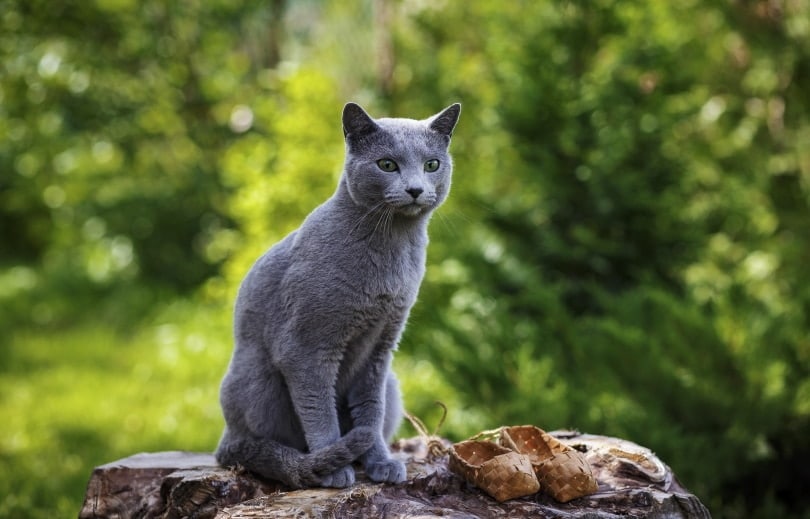
- Pandora
- Payday
- Penny
- Petal
- Pixie
- Pocus
- Poe
- Puma
- Rachel
- Ratri
- Raven
- Ripley
- Rosemary
- Rosie
- Sabrina
- Salem
- Selene
- Sey
- Sharpie
- Sorceress
- Spellbinder
- Stella
- Tessa
- Tilly
- Tootsie
- Trinity
- Viola
- Victoria
- Wednesday
- Widow
- Winifred
- Winona
- Witch
- Zara

100 Hardcore Unisex Gothic Cat Names
Sometimes, it seems most fitting to give a cat a unisex name. These can be just as cute, spooky, strange, and elaborate as female and male gothic cat names. They are perfect for newborn kittens whose sex cannot yet be determined.
Check out these interesting unisex gothic names for your cat:
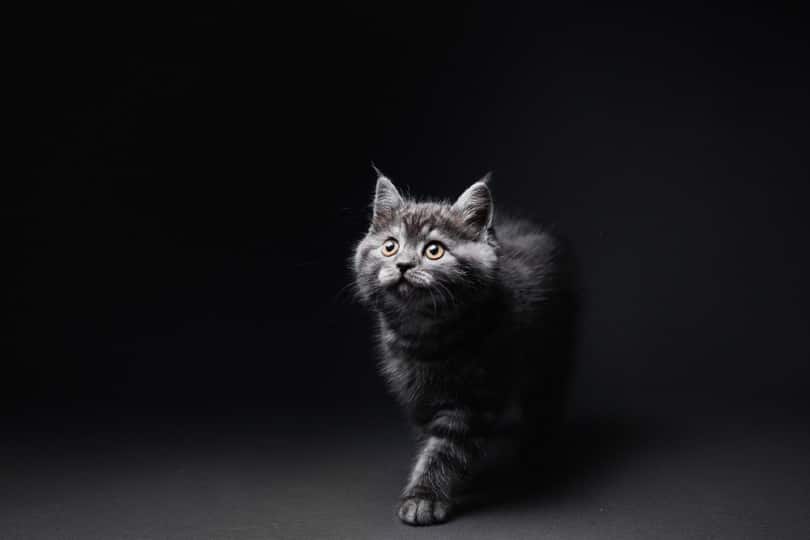
- Arcane
- Ashton
- Banshee
- Basil
- Beetle
- Binx
- Blackamoor
- Blackberry
- Blackie
- Blacktop
- Blade
- Bonfire
- Boots
- Bowtie
- Butler
- Cadbury
- Charlie
- Cinder
- Coal
- Coffee
- Crimson
- Dani
- Darkness
- Dauntless
- Decker
- Dice
- Dusk
- Dusty
- Eclipse
- Eerie
- Espresso
- Eyre
- Fate
- Faust
- Fog
- Fury
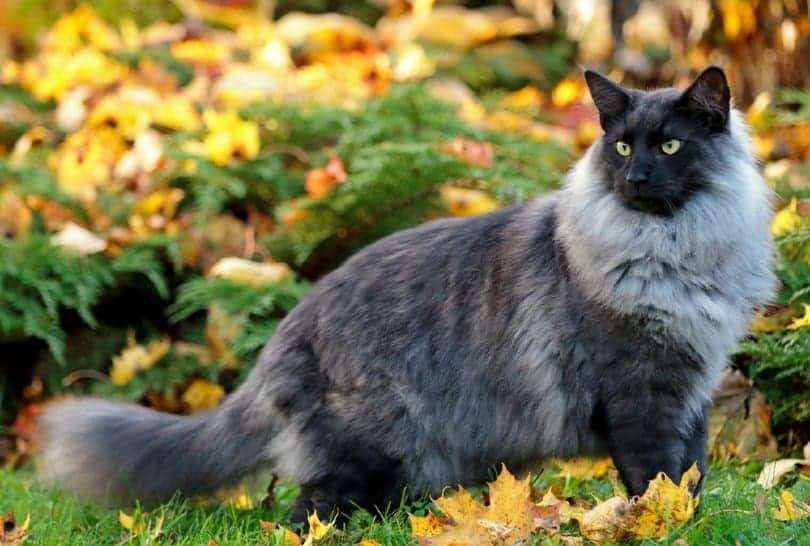
- Galaxy
- Gloom
- Graphite
- Grimm
- Halloween
- Hecate
- Hellraiser
- Hershey
- Hex
- Hocus
- Inkwell
- Jaggie
- Java
- Jet
- Jigsaw
- Juju
- Kumo
- Matches
- Moon
- Nelly
- Nestle
- Night
- Ninja
- Nott
- Nox
- Oreo
- Pepe
- Pepper
- Petal
- Phoenix
- Pitch
- Pocus
- Rebel
- Ripper
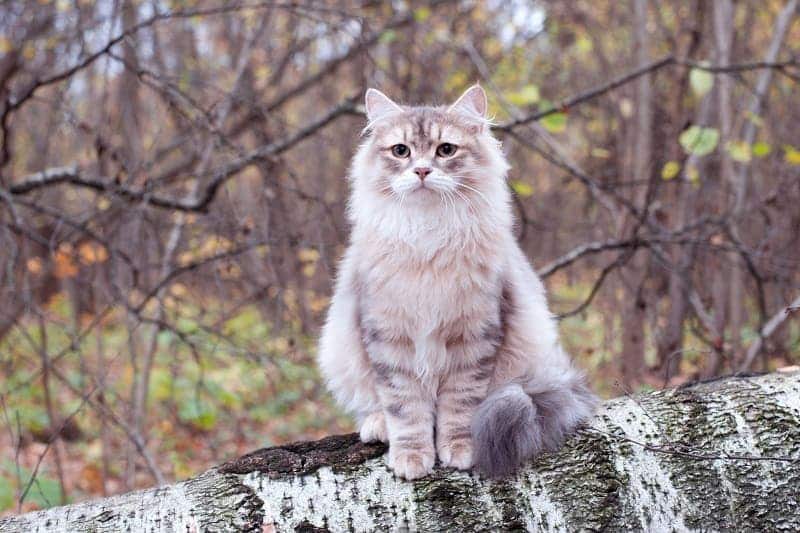
- Sable
- Salem
- Sammy
- Scamp
- Selkie
- Shade
- Shadow
- Siren
- Skunk
- Slither
- Sly
- Smokey
- Smudge
- Soot
- Spade
- Spook
- Starlight
- Stone
- Stygian
- Styx
- Sylph
- Taboo
- Tarmac
- Thunder
- Tilly
- Troll
- Tux
- Undertaker
- Velvet
- Wicca
How to Name Your Cat
The process of naming your cat can seem overwhelming, especially when there are so many awesome kitty names to choose from. Doing a little research and taking the time to think over your decision will help ensure that you don’t end up regretting the name that you give your cat.
Here are a few tips and tricks for choosing a name for your cat that should help make the process easier.
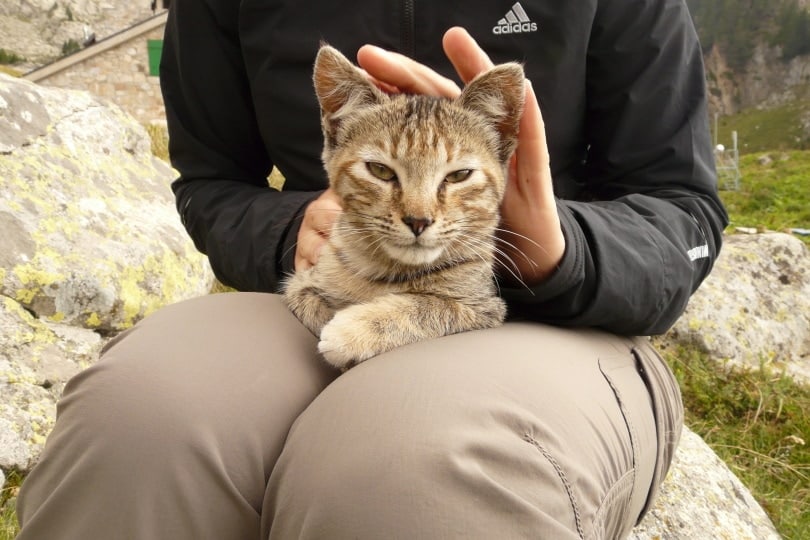
Narrow Down Your List
Trying to choose a name from a long list of options can be almost impossible. Even if you manage to do it, you can expect the process to take a while. However, while you are working to choose a name for your cat, they will have to live without a name, which can become confusing when it’s time to communicate with them. A great way to cut down on the amount of time that it takes to choose a name is to start by narrowing your list of options to no more than a dozen or so that you really like.
Try not to spend too much time considering each option. Give yourself up to a minute to decide whether a name should go on your shortlist. Go through the original list once, and choose as many names as you like. Then, go through the reduced list again to eliminate more names. Keep going through the list until you are left with just a few of your favorites. This will enable you to put the rest of the names out of your mind so you can focus on the few remaining and make a final decision.
Try Out Your Pared Down List
To help you choose which name on your narrowed-down list to ultimately choose for your cat, try out each one in practice. Use each name for half a day while communicating with your cat to see which ones are easiest to say, which ones your cat seems to best respond to, and which ones tend to “stick” the best overall. This should give you a good idea of which names will and won’t work, and you should be able to further narrow your list to just two or three final options.
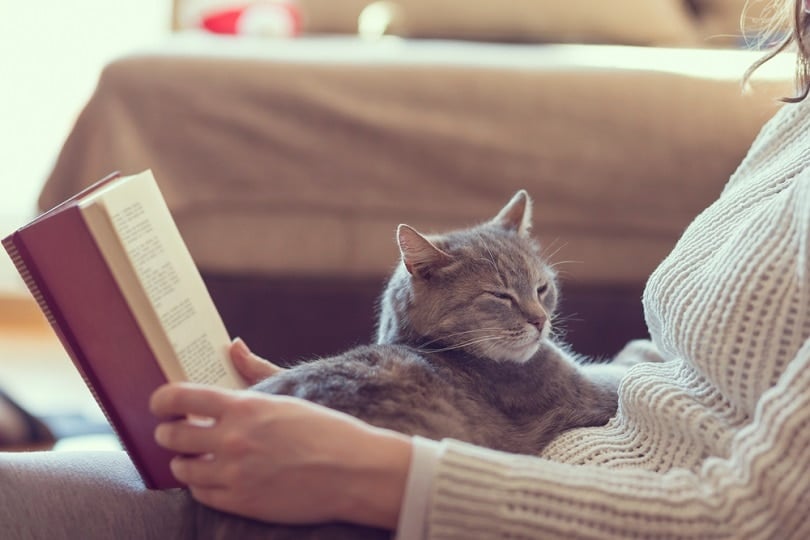
Ask Family and Friends for Votes
If you cannot choose a final name for your cat, recruit your friends and family members to help out. Ask each person in your household and close friends who will spend time with your cat to vote for one of the final names on your list. You can then choose the name with the most votes. Alternatively, you can eliminate the names with the lowest number of votes and then make a final choice from the two picks with the most votes.
In Conclusion
Naming your cat is a serious responsibility, but the process can still be fun and exciting. Your cat doesn’t care nearly as much as you do what they are called, so choose a name that you will be happy with in the long run. If you can’t decide on just one name, you could always give your cat a first and last name, then call them either as you feel like it.
You might also like:
- 150+ Adorable Names for Munchkin Cats: Unique Ideas for Your Kitty
- 100+ Female Cat Names: The Best Names for Girl Cats
Featured Image Credit: Unsplash

